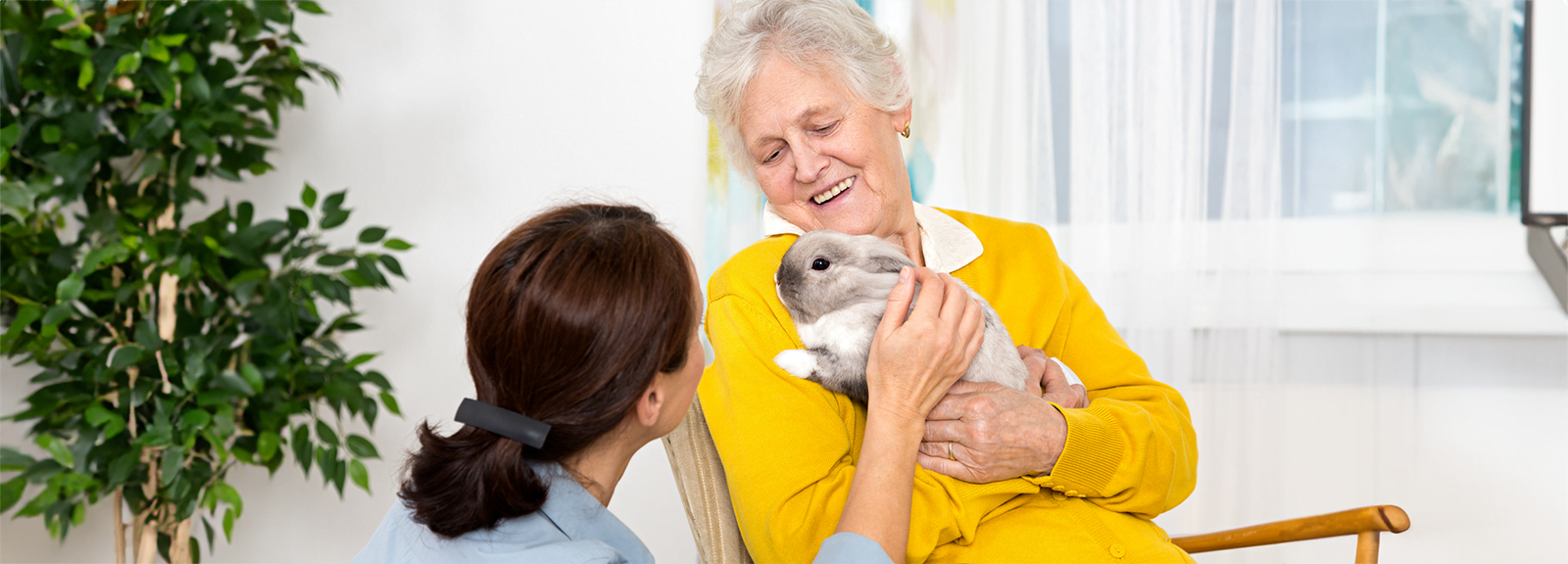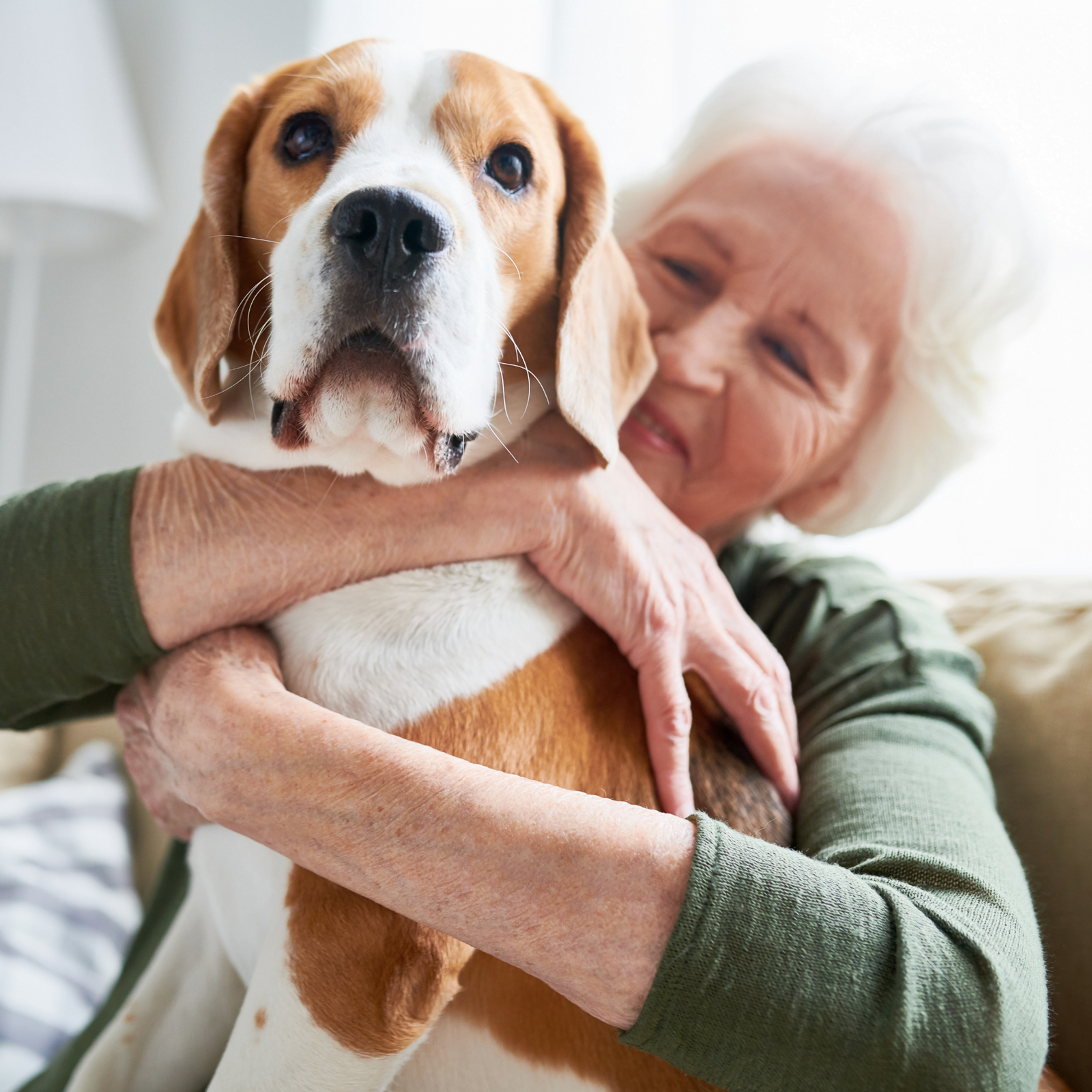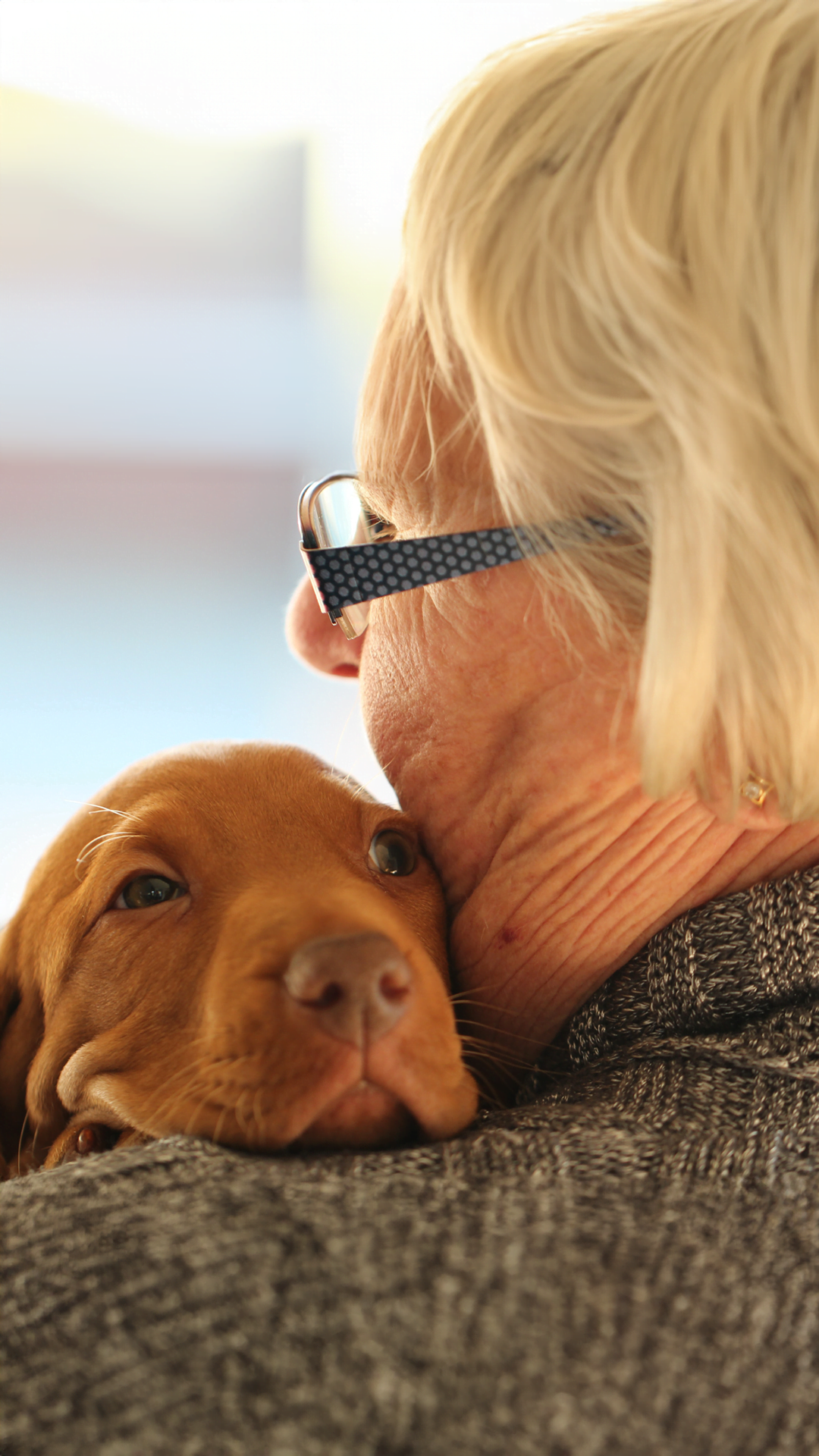
How Pet Therapy for the Elderly Enhances Mental and Physical Health
Pet therapy has gained significant recognition over the last few years due to its numerous scientifically-proven mental health benefits. For elderly people, pet therapy has also started to gain popularity, not just for its mental health benefits, but also for the overall benefits that pets provide.
From mood-boosting and companionship to encouraging physical activity, the benefits of pet therapy for elderly people can be remarkable.

What is pet therapy?
Pet therapy for elderly people (also known as animal-assisted therapy) involves interactions between elderly individuals and specially trained animals to enhance their physical, mental, and emotional well-being. This type of therapy often includes visits from therapy animals, such as dogs or cats, to senior living communities, hospitals, or individual homes.
Mental health benefits
It’s no secret that fluffy companions can provide significant mental health benefits to us all. But with over one million people in the UK experiencing loneliness, according to Age UK, pets can offer crucial support in combating isolation. For elderly individuals, especially those living alone, pets can be a lifeline, offering much-needed social interaction and companionship. These furry friends not only brighten their days upon a visit but they also provide a vital connection to the outside world.
As well as the important companionship that they can provide, studies have shown that interacting with animals can increase levels of serotonin and dopamine, the chemicals in the brain associated with happiness and relaxation. With a boost in serotonin comes a reduction in the risk of depression – a common side effect of loneliness and isolation.

Physical health benefits
There are lots of different ways that pet therapy for elderly people can improve physical health. This can be through more obvious ways – such as dog walking – which helps prevent common issues such as cardiovascular disease, obesity, and arthritis. But there are also other tasks that will keep you or a loved one active and mobile. For example, brushing and feeding can improve and maintain fine motor skills and improve overall physical function. The simple act of petting an animal alone can lower blood pressure and heart rate, promoting a sense of calm and reducing stress.

Implementing pet therapy
You may be wondering where to start with pet therapy for an elderly loved one. If they’re still able to own an animal, adopting an elderly cat or dog from a local rescue shelter can be a fantastic and rewarding experience. Elderly animals will suit a slower way of life, and many are in shelters because of their owners passing away. Adopting is truly a wonderful way to have a pet ownership experience without the intensity or energy of a new puppy or kitten!
If pet ownership is not suited for you or a loved one, regular visits from therapy animals can be a fantastic way to get all the benefits of a small animal. Trained therapy dogs or cats can provide much-needed companionship and emotional support. These interactions allow elderly individuals to experience the many benefits of pets, such as increased social interaction and companionship, without the long-term responsibility of pet ownership.
These visits can also help break the cycle of loneliness and isolation that many elderly people face. The presence of a friendly animal can brighten a day, offering comfort and a sense of security. These visits can be scheduled weekly or bi-weekly, providing consistent opportunities for engagement and routine.
Organising pet therapy for elderly people
If you’re looking to organise pet therapy for an elderly loved one, there are dedicated charities for just that. Pets As Therapy (PAT) is a national charity dedicated to improving the health and well-being of thousands of people in communities throughout the UK. With their temperament assessed pets, their mission is to provide companionship through animals.
Contact us
At Abbots Care, we create personalised care plans for elderly people, to be provided within the comfort of their own home. We can also provide 24/7 live-in care, which gives elderly people the ability to stay living with their beloved pets. To learn more about us, contact us today or request a live-in guide.
Read our recent relevant articles:
